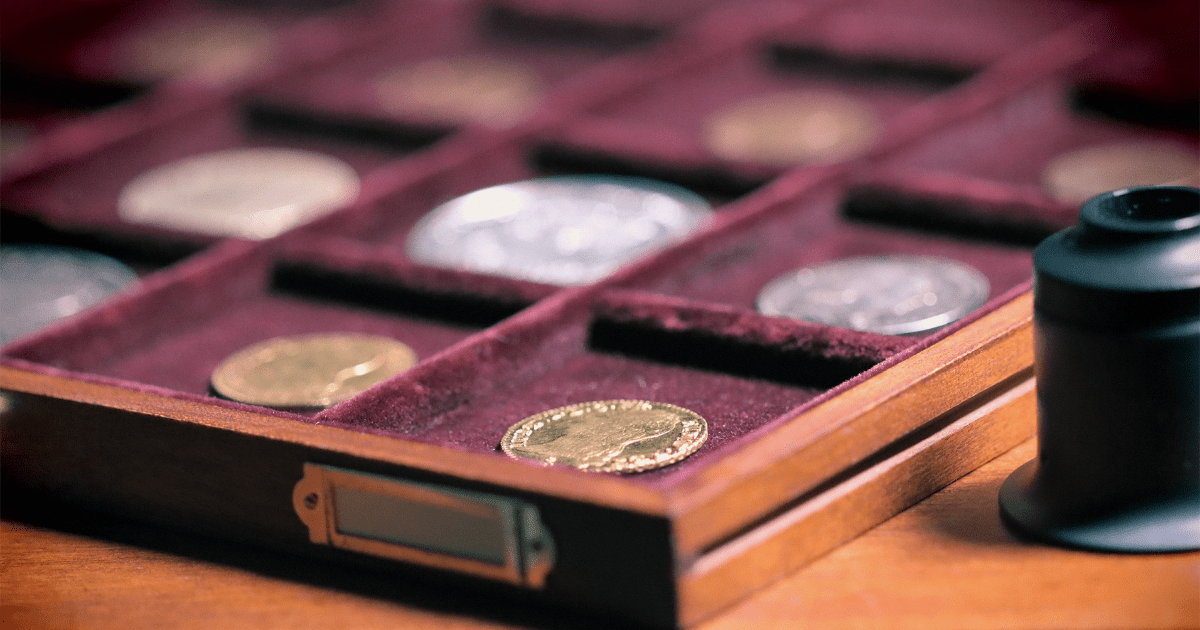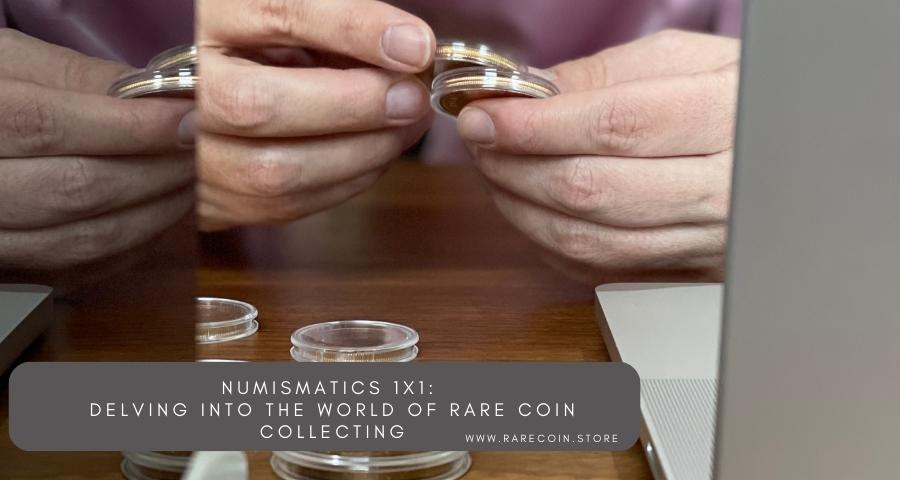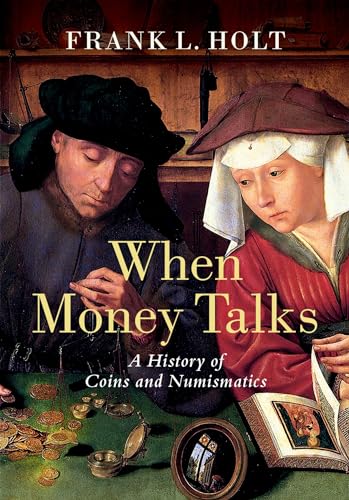Here's a structured approach: This is a methodological strategy. Selecting a Database: Select one that catalogues museums' collections as well as numismatics. Museum databases, like those provided by the British Museum, Smithsonian Institution and online platforms focusing on museum collections or objects of numismatic origin, are choices.
Define Research Focus: Specify your research objectives. You may be interested in the collection of numismatics in specific museums and coin shows, as well as scientific publications on numismatics, or historical and cultural situations for numismatic displays. Clarify the focus of your research.
Search Strategy - Make use of keywords that pertain to both museums and numismatics. Some examples are "numismatic catalogue", "coin exhibitions", "museum catalogue" and specific museum names. It is possible to use advanced search options to filter results by date or collection type.
Data Collection: Access data on the numismatic objects housed in museums, including detailed descriptions, images of provenance, information about the origin, and historical significance. Find digital catalogs that categorize coins based on their the time period, culture or theme of the exhibition.
Analyze the data to comprehend the importance of collections of numismatics in museums. Study how museums display and interpret coins to fit in with larger historical and cultural narratives. Find out how different numismatic museums display material, using educational frameworks and strategies to interpret.
Cross-Referencing: Confirm your findings by cross-referencing data across multiple databases at museums or scholarly sources. This will ensure that your research is reliable and complete, allowing you to have a well rounded perspective of numismatics.
Documentation: Record all of your findings, noting the sources you used, and also describing the methodology. Keep track of the specifics of the databases you used and the search terms you utilized, as well as how each one of them connects to your research.
Stay updated: Numismatic collection and museum exhibits are subject to change as time passes. Check databases regularly for information regarding new acquisitions, temporary exhibitions or publications from scholarly journals which could enhance your research.
Follow these guidelines to efficiently use databases for exploring the field of numismatics and its relationship with museums. This method allows for thorough investigation of the presentation, interpretation, and study of coins within museum settings providing insight into their historical, cultural and educational significance. Check out the top from this source on krona for more recommendations including dollar, coin authenticity, banknote, coin forum, collection, banknote history, currency history, collector, krona, peso and more.

How Do I Search Numismatics For Exhibitions And Show Events By Using A Database?
Finding out about numismatics related to show and exhibition events involves utilizing databases that archive information about numismatic exhibitions as well as conferences, shows, and related events. It is a method that is structured to conduct such research. Websites of major numismatic associations like the American Numismatic Association, online platforms that showcase global numismatic exhibitions or museum archives are a few examples.
Define Research Focus: Specify your research objectives. Are you looking to find out more about past and forthcoming numismatic conferences or regional coin shows, thematic or educational exhibitions as well as forthcoming exhibitions of coins? Find out what you are looking for to guide your research.
Search Strategy: Use words like "numismatic exhibitions,"" "coin shows," "numismatic events," and include specific events' names, dates or thematic focus areas in the event that are relevant. Utilize advanced search options to sort results based on the date, type of event (such as exhibitions, conferences) and geographical region.
Data Collection: Search for past as well as current numismatic displays and other events. Data collection: Collect data on event dates, venues, organizers, thematic or other collections featured as exhibitor participants, as well as related publications or catalogs. Explore databases that offer virtual tours and digital access to exhibit documents.
Review data to discover themes, trends and educational goals of numismatic exhibits and events. Analyze how various shows, exhibitions and collections help to improve public understanding of numismatics.
Cross-Referencing. Make sure that the information you have is true by comparing it with other databases, listings of events, and official websites. This will guarantee completeness and precision in your research. Also, you'll have a complete overview of the numismatic exhibitions.
Documentation: Documentation is essential. Use sources to cite sources and record the methods you used. Provide the databases you used, the search term(s) and the relevance each source has to the question you are asking.
Keep up to date: Numismatics events are always changing, with new exhibitions, shows, and conferences being scheduled regularly. Keep up to date by checking updates from numismatic society, event organizers and databases that specialize in the field.
Following these steps will allow you to use databases effectively to study numismatics in relation to exhibitions and show events. This technique allows for an in-depth investigation of the variety of exhibitions and numismatic events around the globe, their educational value and the scholarly value they bring. Read the top rated click here on coin errors for site advice including coin society, coin storage, banknote society, commemorative, banknote display, mint condition, banknote grading, half-dollar, shekel, bank and more.

How Do I Use A Numismatics Database For Collectors Research?
Here's a method for conducting such research:Database Selection: Select databases that specialize in the numismatic collection, collector profiles the numismatic society, collector interests. A method that is structured is provided to help you conduct this kind of research. There are a myriad of examples of online forums for collectors and websites for numismatic organizations (such the American Numismatic Association), as well as collector databases and research platforms that specialize in numismatics.
Define Research Focus: Specify your research objectives. Are you looking to learn about the collecting interests and motivations of collectors in general, the formations of notable collections, the trends in numismatics collecting, the reasons for historical or cultural significance of collecting? Find out what you are looking for to limit your search.
Search Strategy: Use keywords for example "numismatics collectors," Collector profiles," or "numismatic societies," if you wish. It is also possible to include names of collectors or regions of the world if they are relevant. Use advanced search options for filtering results by date, collector specialties (such as coins from the past exonumia, paper money or even ancient coinage) and membership in a numismatic society.
Data collection: Access information about collectors, including biographies of the collectors, their interests in collecting and noteworthy acquisitions. You can also access details about the contributions made to numismatic research or events for the community. Details on the origin and dispersion notable collections can be gathered through analyzing auction results as well as catalogue entries.
Analysis: Review your data to gain more understanding of the motives and factors that fuel numismatic collecting. Explore how collectors impact collecting trends, create market demands, and help through educational initiatives, exhibitions or publications to preserve and spread the knowledge of numismatics.
Cross-Referencing. Verify what you have discovered by comparing it with information from other databases, numismatic books, and auction archives. This helps to ensure that your research is precise and thorough. It also gives you a better understanding of the functions and contributions played by collectors within the numismatic world.
Documentation: Document your findings thoroughly including citations to sources and highlighting the methodologies employed. Keep track of information like databases you've accessed and the search terms you used and the relevance of these to your research questions.
Keep up to date the latest trends in collecting and trends change over time. Monitor updates in collector forums, publications of numismatic societies and databases for collectors with specialized interests to keep up-to-date with the most recent trends and developments.
Follow these steps to effectively utilize databases effectively to explore numismatics and collectors. This technique allows an in-depth study of the motives, interests and contributions of collectors in the numismatic world. It also offers valuable insight into the historical and cultural dimensions of collecting. Have a look at the recommended official source about rial for more tips including coin dealer, federal reserve, slovak coins, coin edge, proof, dinar, rare coins, banknote auction, coin minting, dollar and more.

How Do I Utilize A Database To Research Numismatics In Relation To Online Forums And Communities?
This requires the use of online communities and forums where experts, enthusiasts and collectors can exchange their knowledge, discuss trends, or display their collections. This is a methodical approach for conducting such research. Examples include forums like CoinTalk on Reddit and r/Coins on Facebook and communities that focus on numismatics.
Define Research Focus: Specify your research objectives. Do you want to learn about the latest trends in collecting? Are you looking for experts who can offer advice on numismatics, authentication, and grade? Find out the purpose of your research.
Search Strategy: Choose relevant keywords to your interests, such as "numismatic forums," "coin collector communities," and "online numismatic conversations," including specific topics or specific keywords (ancients coins, modern coins paper currency) related to your question. Utilize search features within each platform to locate relevant discussions.
Data Collection: Access discussions, threads and posts in the online communities. Learn about strategies for collecting coins, coin identification strategies and market trends, as well as personal experiences with numismatic discoveries and discussions about aspects of culture or history that relate to coinage.
Analysis: Analyze information to gain a greater understanding of opinions of experiences, knowledge, and experience that are shared by members of online numismatic clubs. Examine the reliability of the data by evaluating the contributions of experts as well as the consensus among members on certain topics and the depths of discussion.
Cross-Referencing. It is possible to verify your conclusions by comparing data from multiple forums. Examine the insights of different platforms to get a better understanding of trends that are collected, market sentiments and experts in the world of numismatics.
Documentation - Record your observations in a systematic fashion including threads, contributors and discussions as required. Keep track of the key findings and opinions expressed in the online forums and communities.
Keep Engaged - Take part actively in discussions and ask questions, then contribute to the conversation to get insight and make connections amongst the numismatics. Keep up to date with the most recent threads, announcements, and responses.
By following these steps, you can effectively make use of forums and online communities to conduct your research on numismatics. This approach allows you to tap into the collective knowledge and experience of a wide collection of experts and collectors with valuable insight and perspectives on different aspects of collecting coins, identification, and appreciation. Take a look at the best this post for banknote dealer for blog examples including banknote appraisal, banknote expo, currency exhibition, engraving, pound, money, copyright detection, half-dollar, coin pressing, money and more.

How Can I Look Up A Database On Numismatics For Networking Opportunities?
To conduct research regarding networking possibilities, it's essential to use platforms and databases. These facilitate connections among collectors and dealers researchers, enthusiasts and scholars throughout the world of numismatics. Here's a method to conduct this research: Database Selection: Choose databases and platforms which specialize in numismatic social networking opportunities. Examples of these include numismatic websites or online discussion forums (such CoinTalk, Reddit’s Coins) and social media (such Facebook and LinkedIn) groups, and professional networks.
Define Research Focus: Specify your objectives for networking. Are you seeking an opportunity to engage with collectors so that you can allow them to exchange knowledge and share experiences or do they need your help in making purchases or selling their items or items? Do you want to work with academics in research or attend events or conferences? Or even occasions with other scholars or researchers? Clarify your interests to help you in your research.
Search Strategy: Make use of keywords like "numismatic networking," "coin collectors ' forums," "numismatic social media networks," and include particular interests or geographical regions if appropriate. Search functions on platforms to find relevant forums, groups and events.
Data Collection: Access to information about the opportunities for networking within numismatic communities. Get information on group descriptions, benefits of being a member (such as events, discussions and resources) and upcoming shows (such auctions) as well as conventions (such as conventions) as well as profiles of influential people.
Analysis: Examine all data to find potential networks and opportunities which are pertinent. Review the participation levels and frequency, diversity, and collaboration capabilities of groups and forums.
Cross-Reference: Verify the data you've gathered by comparing it to other databases, websites belonging to societies for numismatics, social media groups and professional networks. This ensures that you can identify comprehensive networking options across various areas and platforms.
Engage: Be active in your interactions with the networks you choose. Engage in discussion and pose questions. Contribute your knowledge. Meet other dealers, collectors, and scholars to share valuable information and build your circle of friends.
Documentation: Record your network activities in detail, noting the platforms used, groups joined, events attended, and contacts made. Keep track the results and opportunities you gain by networking.
You can use databases to identify numismatic opportunities using these easy steps. This approach will allow you to build a professional or personal numismatic network, which can be utilized to collaborate, information exchange and participation at numismatic events. Take a look at the most popular coin society for blog examples including coin holder, ringgit, currency authentication, banknote dealer, czech coins, coin catalog, antique coins, coin storage, coin mintmark, engraving and more.
